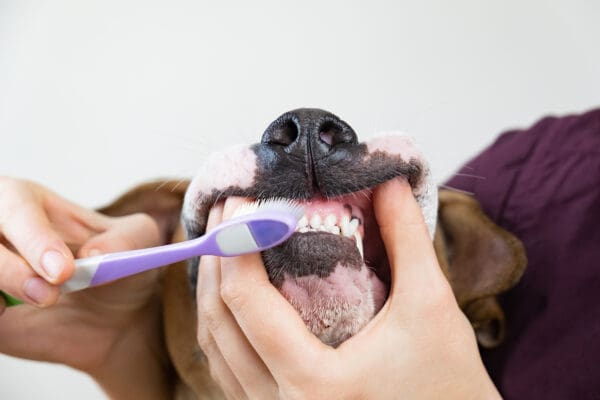What is a Food Allergy?A food allergy is a negative response by the immune system, usually to a protein in the diet. It is distinct from other adverse responses to food, such as:
It is important to remember that food allergies are NOT usually associated with a sudden diet change. It is much more likely that your dog will have been on their food for an extended period of time before the development of a true food allergy. What foods are dogs allergic to?Proteins in beef, dairy products, wheat, chicken, egg, and soy products are often linked to food allergies in dogs. Corn is rarely a cause of food allergy, but has been a popular ingredient in dog foods for many years. Michigan State University’s College of Veterinary Medicine outlines most common breeds affected by food allergies and what pet owners can do. What are the most commonly affected breeds?
What will my dog look like with food allergies?
Dogs with food allergies may also have skin diseases resulting from flea allergies, mold allergies, or parasites. And these diseases will need to be diagnosed and treated before your dog can recover from his food allergy. How are food allergies diagnosed?A restricted dietary trial must be performed to accurately diagnose a food allergy in your dog. This is called an “elimination trial” and includes either a homemade protein and carbohydrate diet or a commercially prepared product. Offering treats, human foods, flavored medications and flavored toys must be discontinued during the 12 week diet elimination trial. Commercially available products for dogs include:
What is a Diet Elimination Trial?To properly diagnose a true food allergy, your veterinarian will recommend a 12 week elimination diet trial. You can choose to feed a home-cooked diet or a commercially prepared therapeutic product. This dietary choice will depend on your preferences, availability of ingredients, and cost to prepare/feed meals. The veterinarian will instruct you to gradually switch from your dog’s current food to the chosen elimination diet over a 4 day period. Only the chosen diet and water is to be fed to your dog during the 12-week diet trial. No treats, supplements, flavored medications or flavored toys should be offered during this time. Your veterinarian will also instruct you to keep a diary or journal during the trial. It will be important to record your dog’s appetite, exercise activity, bowel movements, urinations, itching, scratching, and licking. This diary will help your veterinarian evaluate your dog’s progress over time. If your dog is no longer showing any clinical signs of food allergies at the end of 12 weeks, your veterinarian will recommend introducing the food your dog was on prior to the start of the trial. This is done in order to identify the specific protein sources causing your dog’s allergy. The original food will only be fed for a short time. Your veterinarian will work with you to find the best ‘maintenance’ diet to feed your dog long term. Some commercial maintenance diets include:
Can my dog’s allergies ever return?Unfortunately, the answer to this question is yes. Dogs that are found to be food-allergic can often develop a new allergy to additional protein sources. This includes the novel proteins found in any ‘maintenance diet’. Regular check-ups at your veterinarian’s clinic are recommended to keep your dog as healthy as possible. Additional ResourcesManual of Veterinary Dietetics, Buffington, Holloway Abood. Elsevier, St. Louis, Mo. 2004 Dematology Service, MSU |



